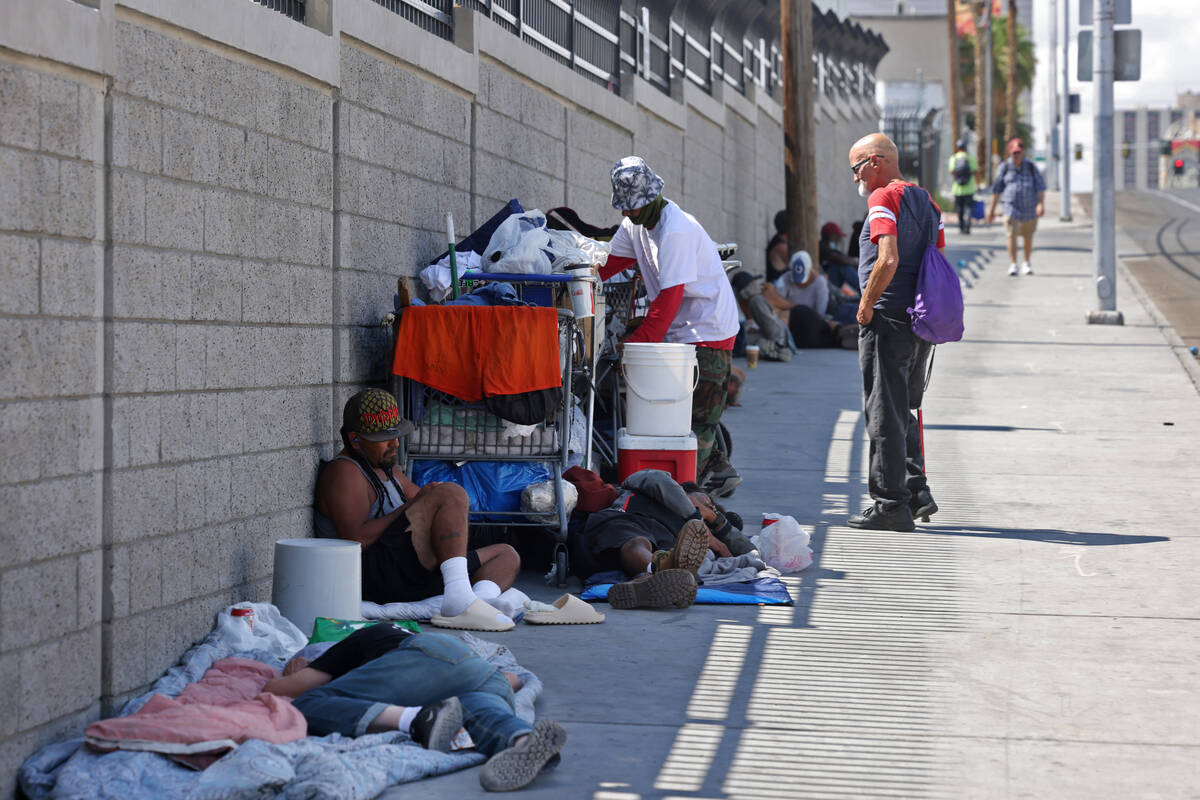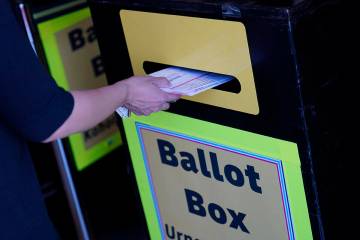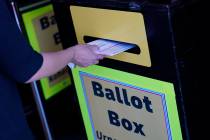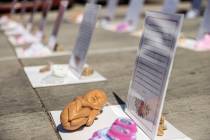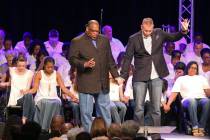VICTOR JOECKS: Stop feeding the homeless
If you want to help homeless people this Thanksgiving, don’t give them money or food. It may make you feel good, but it’s contributing to a cycle of addiction and self-destruction.
Las Vegas has a homeless problem. Drug addicts threaten tourists on the Strip and Fremont Street or lie passed out on the sidewalks. Homeless camps pop up in vacant lots and along roadways. The number of homeless identified by a count conducted in January was more than 6,500. That was Southern Nevada’s highest total since 2015.
It’s only natural to want to help those individuals, especially with the holidays coming up. This the giving season. But while it’s an understandable sentiment, there’s one big problem.
“Anything you do to support a person who’s addicted to heroin is enabling them,” said Dave Marlon, CEO of Vegas Stronger. Vegas Stronger is a local nonprofit that seeks to “reduce homelessness in our city through treating its root causes — substance-abuse disorders and mental illness.”
“What we like to call the ‘unhoused’ are in almost all cases dealing with mental illness or a substance abuse issue,” he said. More than 90 percent of the homeless in Las Vegas fit in one of those categories and most struggle with both.
The goal should be forcing people to “hit rock bottom.” It’s only then that they are willing to seek a lifestyle change. “We need to push people to treatment while we pull them to counseling,” Marlon said.
Those efforts are hindered by people who, with the best of intentions, give the homeless cash and food. These do-gooders “have become the primary problem. It’s too cost effective to be a drug addict in Las Vegas,” Marlon said. He estimated that on some street corners, a homeless woman with a dog can collect $80 an hour. That money doesn’t go toward shelter, but fentanyl and other drugs.
“The community needs to help us by making it harder to be homeless,” Marlon said. He doesn’t say that to be cruel. He knows cutting off no-strings-attached assistance is necessary so the homeless will “go get help.”
There’s a key insight here. Homelessness is not the primary problem. It’s a symptom of a different set of problems — addiction and mental illness. If groups such as Vegas Stronger can help someone overcome that, housing, employment and rejoining society will follow.
Contrast this with people who think homelessness is primarily an economic problem caused by high housing prices. If you start from that assumption, your solutions look very different. It would be unfair or pointless to ask someone to change their behavior because individuals can’t reduce rental prices. Instead, government that must intervene to build more shelter beds and low-income housing. Some push for more drastic measures such as rent control. Either way, the solution isn’t self-improvement but policy changes.
There’s no need to rely on theoretical arguments to see who’s right. Test these theories in the real world. For instance, the Las Vegas Valley has thousands of shelter beds. If homelessness is primarily about a lack of money, you would expect every one of them to be filled. But they’re not.
Marlon noted that “there’s space available” for the homeless right in Las Vegas. People sleep on the streets instead because “they want to use drugs.”
That’s a problem. Both carrots and sticks can help. Reward those who are willing to participate in their own recovery with food and shelter. Officials should break up homeless camps and give vagrants a choice: Go to jail or join a recovery program.
The goal should be to make these folks desperate enough to seek what they actually need — treatment. Do your part. Stop feeding the homeless.
Victor Joecks’ column appears in the Opinion section each Sunday, Wednesday and Friday. Contact him at vjoecks@reviewjournal.com or 702-383-4698. Follow @victorjoecks on X.



